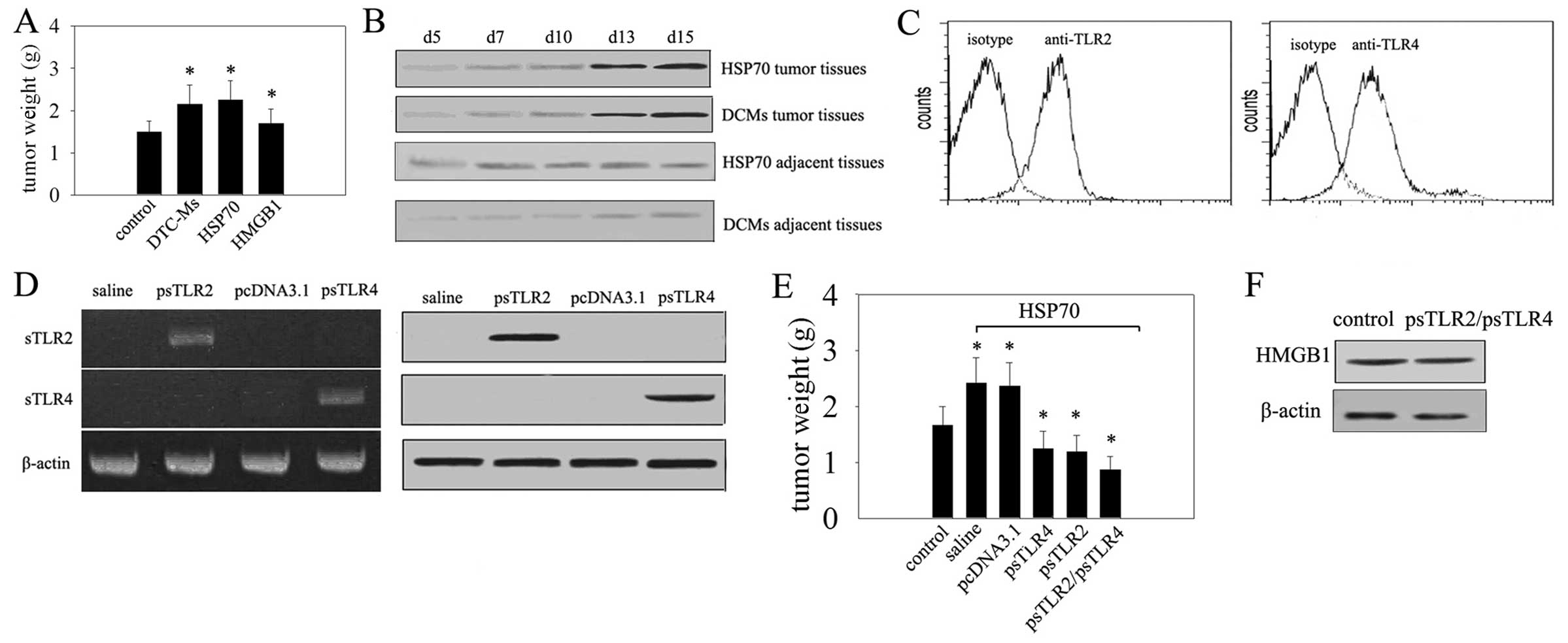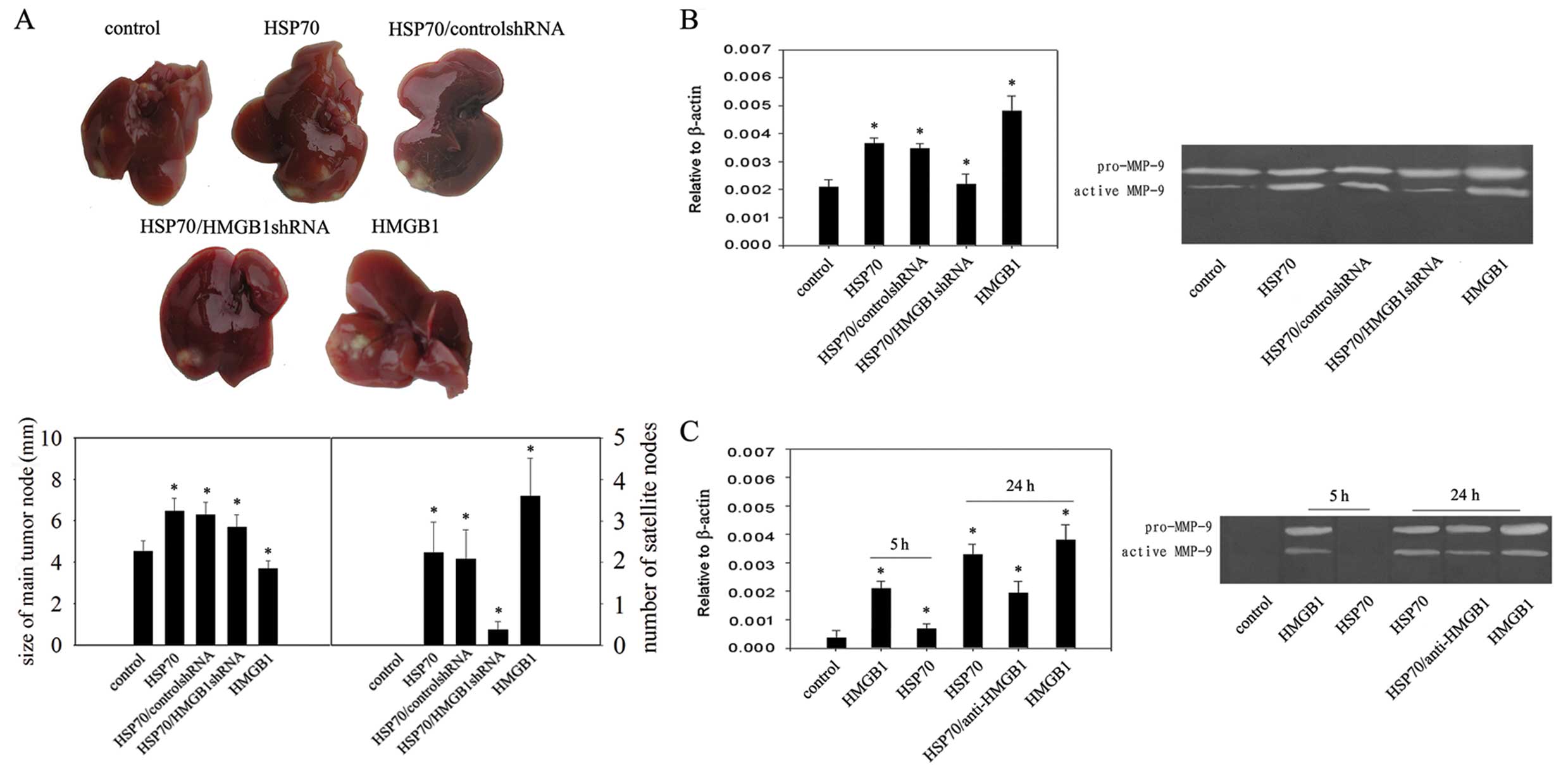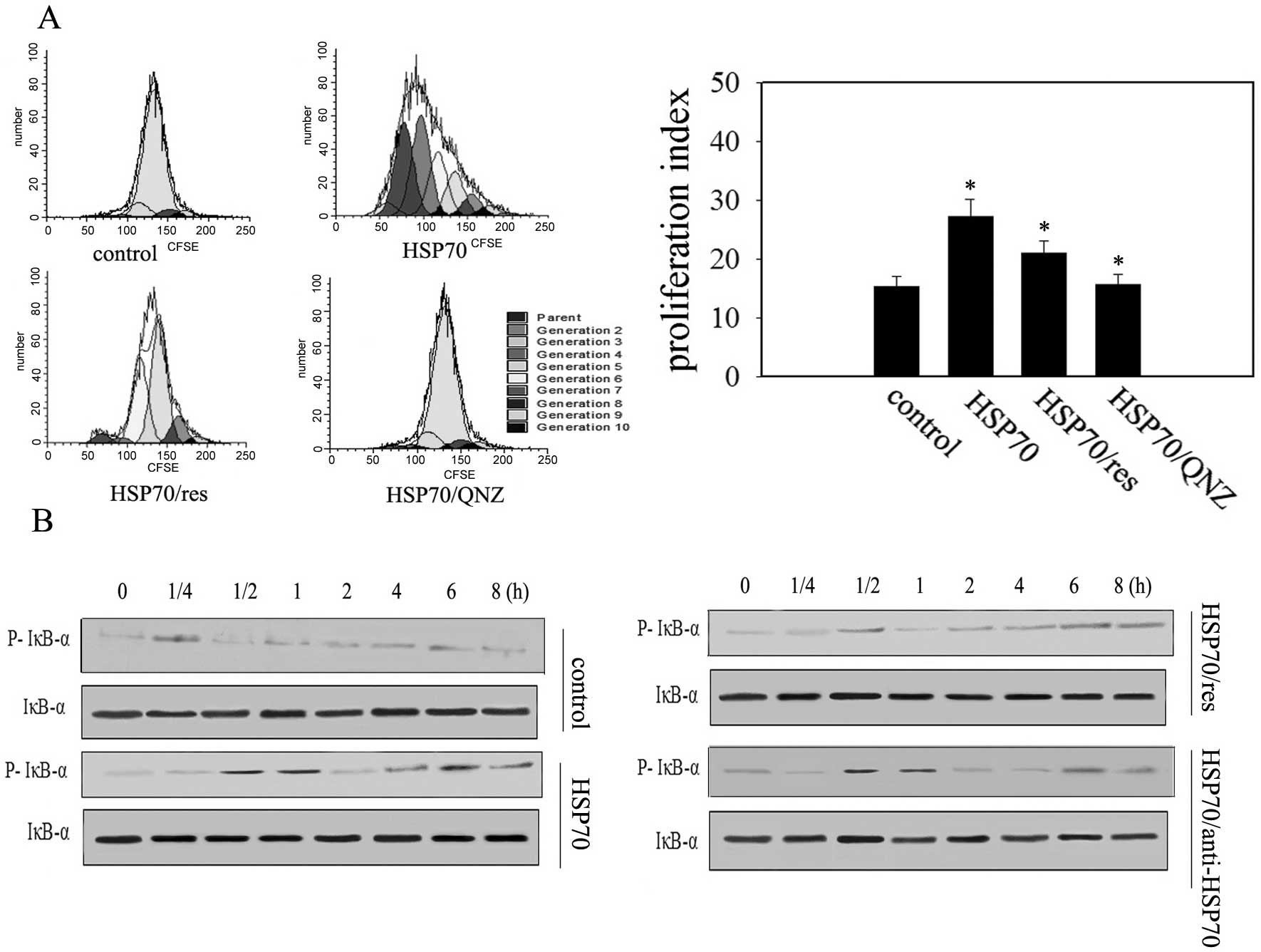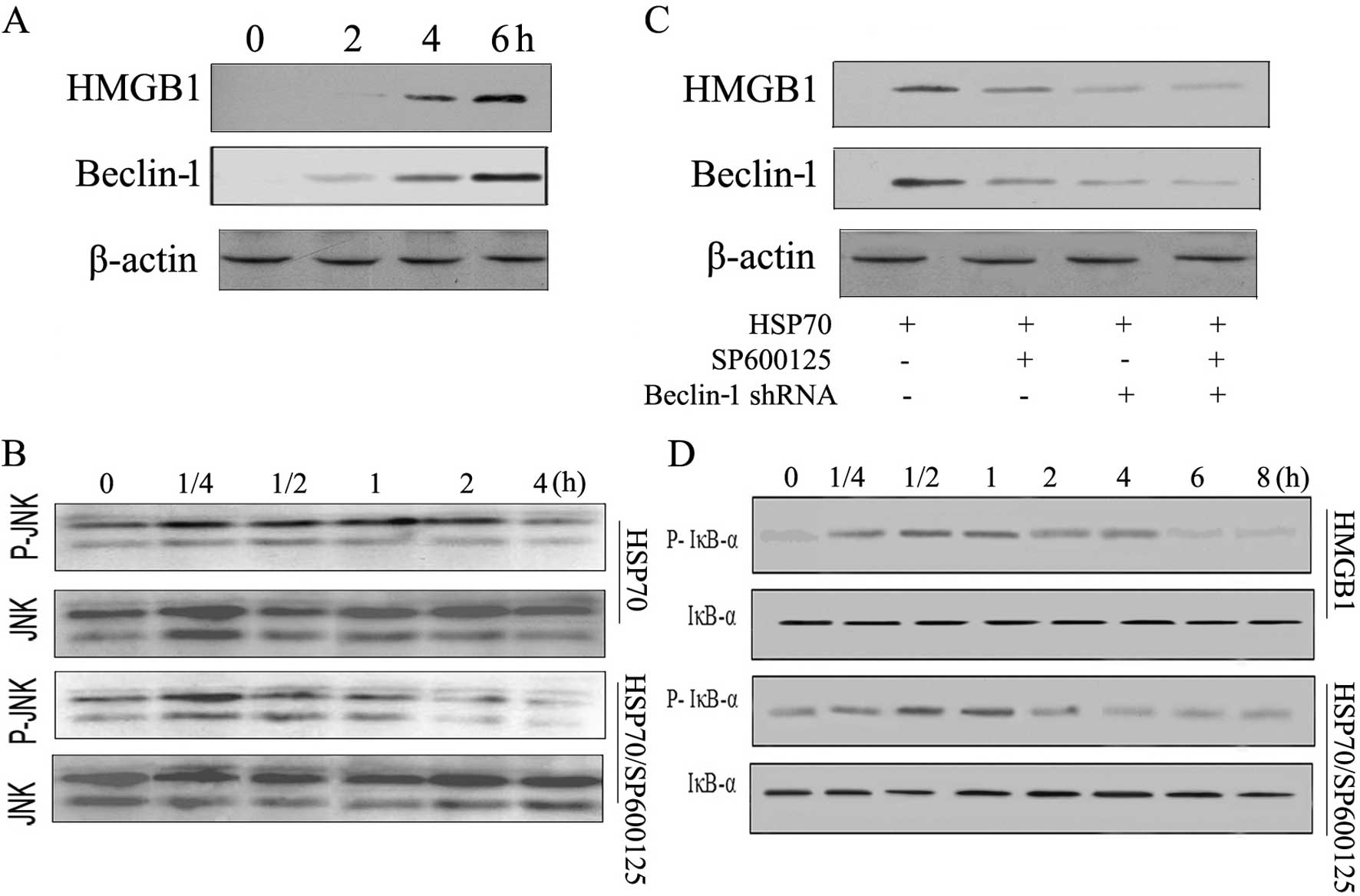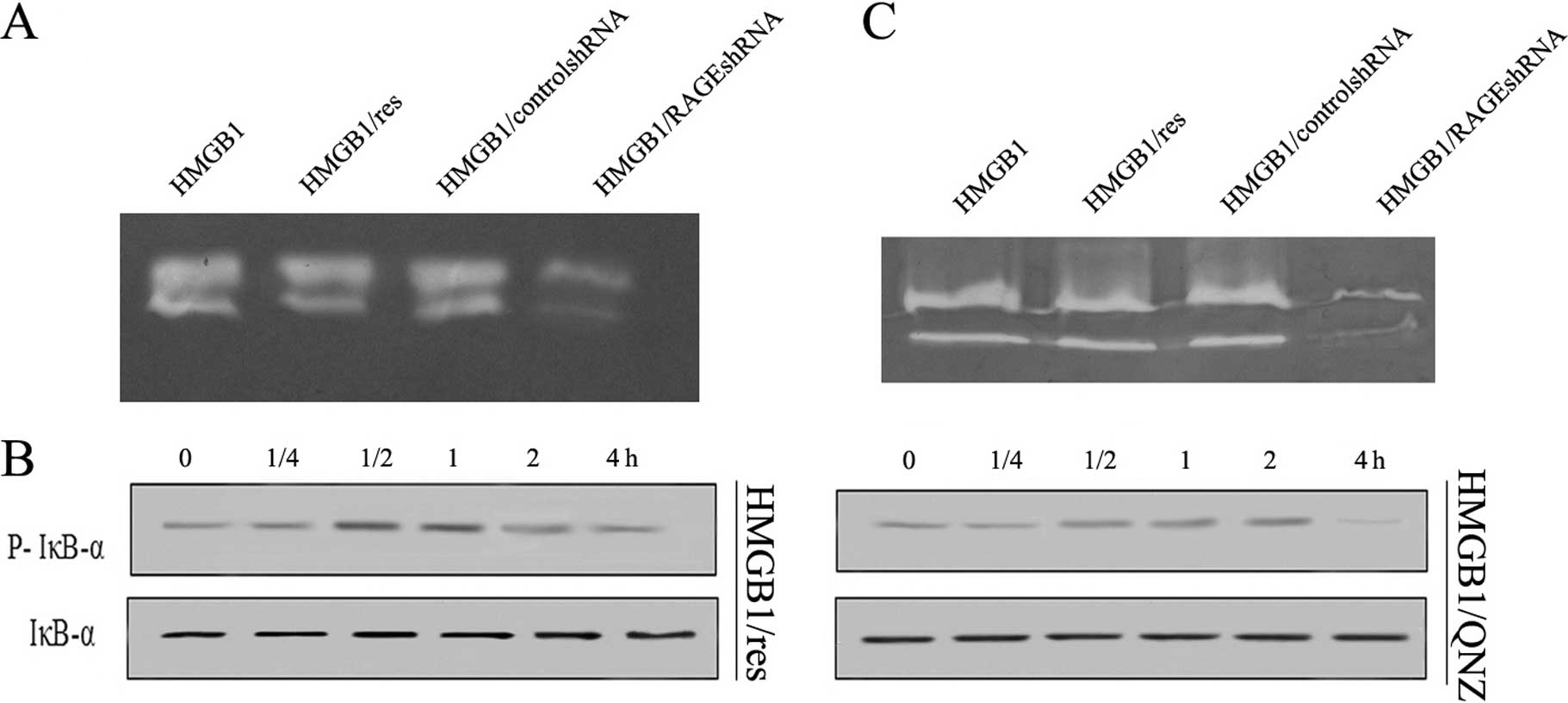|
1
|
Sato Y, Goto Y, Narita N and Hoon DS:
Cancer cells expressing Toll-like receptors and the tumor
microenvironment. Cancer Microenviron. 2:S205–S214. 2009.
View Article : Google Scholar
|
|
2
|
Srikrishna G and Freeze HH: Endogenous
damage-associated molecular pattern molecules at the crossroads of
inflammation and cancer. Neoplasia. 11:615–628. 2009.PubMed/NCBI
|
|
3
|
Huang B, Zhao J, Shen S, et al: Listeria
monocytogenes promotes tumor growth via tumor cell toll like
receptor 2 signaling. Cancer Res. 67:4346–4352. 2007. View Article : Google Scholar : PubMed/NCBI
|
|
4
|
Korbelik M, Zhang W and Merchant S:
Involvement of damage-associated molecular patterns in tumor
response to photodynamic therapy: surface expression of
calreticulin and high-mobility group box-1 release. Cancer Immunol
Immunother. 60:1431–1437. 2011. View Article : Google Scholar
|
|
5
|
Jäättelä M: Escaping cell death: survival
proteins in cancer. Exp Cell Res. 248:30–43. 1999.PubMed/NCBI
|
|
6
|
Basu S, Binder RJ, Suto R, Anderson KM and
Srivastava PK: Necrotic but not apoptotic cell death releases heat
shock proteins, which deliver a partial maturation signal to
dendritic cells and activate the NF-kappaB pathway. Int Immunol.
12:1539–1546. 2000. View Article : Google Scholar : PubMed/NCBI
|
|
7
|
Bausero MA, Gastpar R, Multhoff G and Asea
A: Alternative mechanism by which IFN-gamma enhances tumor
recognition: active release of heat shock protein 72. J Immunol.
175:2900–2912. 2005. View Article : Google Scholar : PubMed/NCBI
|
|
8
|
Li S, Zhou Y, Fan J, Cao S, et al: Heat
shock protein 72 enhances autophagy as a protective mechanism in
lipopolysaccharide-induced peritonitis in rats. Am J Pathol.
179:2822–2834. 2011. View Article : Google Scholar : PubMed/NCBI
|
|
9
|
Pikarsky E, Porat RM, Stein I, Abramovitch
R, et al: NF-kappaB functions as a tumour promoter in
inflammation-associated cancer. Nature. 431:461–466. 2004.
View Article : Google Scholar : PubMed/NCBI
|
|
10
|
Ellerman JE, Brown CK, de Vera M, et al:
Masquerader: high mobility group box-1 and cancer. Clin Cancer Res.
13:2836–2848. 2007. View Article : Google Scholar : PubMed/NCBI
|
|
11
|
Taguchi A, Blood DC, del Toro G, et al:
Blockade of RAGE-amphoterin signalling suppresses tumour growth and
metastases. Nature. 405:354–360. 2000. View
Article : Google Scholar : PubMed/NCBI
|
|
12
|
Lotze MT and Tracey KJ: High-mobility
group box 1 protein (HMGB1): nuclear weapon in the immune arsenal.
Nat Rev Immunol. 5:331–342. 2005. View
Article : Google Scholar : PubMed/NCBI
|
|
13
|
Tang D, Kang R, Cheh CW, et al: HMGB1
release and redox regulates autophagy and apoptosis in cancer
cells. Oncogene. 29:5299–5310. 2010. View Article : Google Scholar : PubMed/NCBI
|
|
14
|
Tang D, Kang R, Zeh HJ III and Lotze MT:
High-mobility group box 1 and cancer. Biochim Biophys Acta.
1799:131–140. 2010. View Article : Google Scholar : PubMed/NCBI
|
|
15
|
Apetoh L, Ghiringhelli F, Tesniere A,
Obeid M, et al: Toll-like receptor 4-dependent contribution of the
immune system to anticancer chemotherapy and radiotherapy. Nat Med.
13:1050–1059. 2007. View
Article : Google Scholar
|
|
16
|
Geng H, Zhang GM, Xiao H, et al: HSP70
vaccine in combination with gene therapy with plasmid DNA encoding
sPD-1 overcomes immune resistance and suppresses the progression of
pulmonary metastatic melanoma. Int J Cancer. 118:2657–2664. 2006.
View Article : Google Scholar : PubMed/NCBI
|
|
17
|
Gong W, Zhang GM, Liu Y, et al: IFN-gamma
withdrawal after immunotherapy potentiates B16 melanoma invasion
and metastasis by intensifying tumor integrin alphavbeta3
signaling. Int J Cancer. 123:702–708. 2008. View Article : Google Scholar : PubMed/NCBI
|
|
18
|
Tsan MF and Gao B: Endogenous ligands of
Toll-like receptors. J Leukoc Biol. 76:514–519. 2004. View Article : Google Scholar : PubMed/NCBI
|
|
19
|
Asea A, Rehli M, Kabingu E, Boch JA, et
al: Novel signal transduction pathway utilized by extracellular
HSP70: role of toll-like receptor (TLR) 2 and TLR4. J Biol Chem.
277:15028–15034. 2002. View Article : Google Scholar : PubMed/NCBI
|
|
20
|
Asea A: Initiation of the immune response
by extracellular Hsp72: chaperokine activity of Hsp72. Curr Immunol
Rev. 2:209–215. 2006. View Article : Google Scholar : PubMed/NCBI
|
|
21
|
Youn HS, Lee JY, Fitzgerald KA, et al:
Specific inhibition of MyD88-independent signaling pathways of TLR3
and TLR4 by resveratrol: molecular targets are TBK1 and RIP1 in
TRIF complex. J Immunol. 175:3339–3346. 2005. View Article : Google Scholar : PubMed/NCBI
|
|
22
|
Mosser DD and Morimoto RI: Molecular
chaperones and the stress of oncogenesis. Oncogene. 23:2907–2918.
2004. View Article : Google Scholar : PubMed/NCBI
|
|
23
|
Tang D, Loze MT, Zeh HJ and Kang R: the
redox protein HMGB1 regulates cell death and survival in cancer
treatment. Autophagy. 6:1181–1183. 2010. View Article : Google Scholar : PubMed/NCBI
|
|
24
|
Rohde M, Daugaard M, Jensen MH, et al:
Members of the heat-shock protein 70 family promote cancer cell
growth by distinct mechanisms. Genes Dev. 19:570–582. 2005.
View Article : Google Scholar : PubMed/NCBI
|
|
25
|
Wu CX, Sun H, Liu Q, Guo H and Gong JP:
LPS induces HMGB1 relocation and release by activating the
NF-κB-CBP signal transduction pathway in the murine macrophage like
cell line RAW264.7. J Surg Res. 175:88–100. 2012.PubMed/NCBI
|
|
26
|
van Beijnum JR, Buurman WA and Griffioen
AW: Convergence and amplification of toll-like receptor (TLR) and
receptor for advanced glycation end products (RAGE) signaling
pathways via high mobility group B1 (HMGB1). Angiogenesis.
11:91–99. 2008.PubMed/NCBI
|
|
27
|
Lee JK, Kim SY, Kim YS, Lee WH, et al:
Suppression of the TRIF-dependent signaling pathway of Toll-like
receptors by luteolin. Biochem Pharmacol. 77:1391–1400. 2009.
View Article : Google Scholar : PubMed/NCBI
|
|
28
|
Liliensiek B, Weigand MA, Bierhaus A,
Nicklas W, et al: Receptor for advanced glycation end products
(RAGE) regulates sepsis but not the adaptive immune response. J
Clin Invest. 113:1641–1650. 2004. View Article : Google Scholar : PubMed/NCBI
|
|
29
|
Shvartsman SY, Hagan MP, Yacoub A, Dent P,
et al: Autocrine loops with positive feedback enable
context-dependent cell signaling. Am J Physiol Cell Physiol.
282:C545–C559. 2002. View Article : Google Scholar : PubMed/NCBI
|















